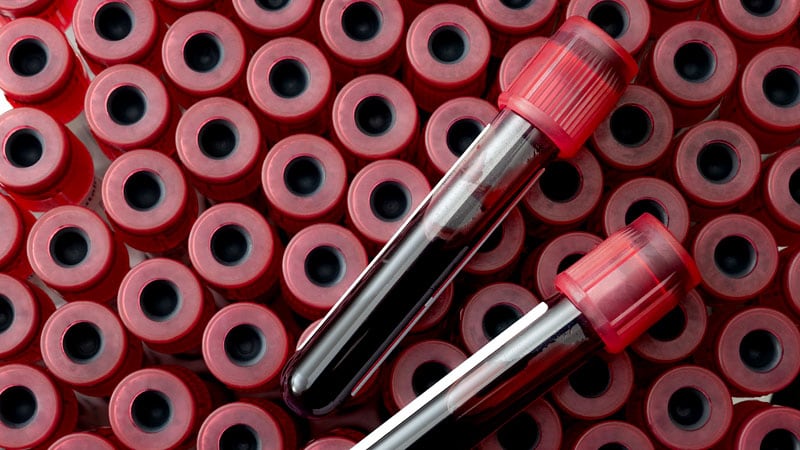insight - Pharmacology - # Adalimumab's Impact on Hematologic Parameters in Hidradenitis Suppurativa
Adalimumab Therapy Improves Hematologic Abnormalities in Patients with Hidradenitis Suppurativa
Core Concepts
Adalimumab therapy, regardless of clinical response, improves common hematologic abnormalities such as anemia, thrombocytosis, and leukocytosis in patients with hidradenitis suppurativa.
Abstract
This study evaluated the impact of adalimumab, a tumor necrosis factor blocker, on hematologic parameters in patients with hidradenitis suppurativa (HS), a chronic inflammatory skin condition. The researchers conducted a post hoc analysis of two phase 3 randomized controlled trials involving 633 patients with moderate to severe HS.
The key findings are:
Among the 123 patients who received adalimumab, including non-responders, significant improvements were observed in mean changes in hemoglobin levels, platelet count, and white blood cell (WBC) count (p<0.001 for all). Those on placebo did not have significant improvements in these parameters.
Adalimumab responders also demonstrated significant improvements in mean hemoglobin levels, platelet count, and WBC count (p<0.001 for all). The association between clinical response with adalimumab and degree of improvement in hemoglobin was borderline significant.
Adalimumab responders had higher odds for resolution of anemia (53.3%) than adalimumab non-responders (20.8%; p=0.04) and placebo non-responders (16.7%; p=0.004).
The authors concluded that adalimumab, regardless of clinical response, was associated with improvements in common hematologic abnormalities in HS patients, highlighting the high inflammatory load in HS and the frequent occurrence of inflammation-related dyscrasias.
Adalimumab Improves Blood Parameters in Patients With HS
Stats
Among the 123 patients who received adalimumab, including non-responders, significant improvements were observed in mean changes in hemoglobin levels (0.37 g/dL), platelet count (-34.6 × 10^3 /μL), and white blood cell (WBC) count (-1152.66/μL) (P < .001 for all).
Adalimumab responders demonstrated significant improvements in mean hemoglobin levels (0.72 g/dL), platelet count (-42.2 × 10^3 /μL), and WBC count (-1572.34/μL) (P < .001 for all).
Adalimumab responders had higher odds for resolution of anemia (53.3%) than adalimumab non-responders (20.8%; P = .04) and placebo non-responders (16.7%; P = .004).
Quotes
"Adalimumab, regardless of HiSCR responder status, was associated with improvements in common hematologic abnormalities."
"These findings highlight the high inflammatory load in patients with HS and the frequent occurrence of inflammation-related dyscrasias, which may warrant aggressive management."
Key Insights Distilled From
by Zeel Mehta at www.medscape.com 05-09-2024
https://www.medscape.com/viewarticle/adalimumab-associated-improved-hematologic-abnormalities-2024a10008xl
Deeper Inquiries
What are the potential mechanisms by which adalimumab improves hematologic parameters in hidradenitis suppurativa patients?
Adalimumab, a tumor necrosis factor (TNF) blocker, exerts its effects by targeting TNF-alpha, a pro-inflammatory cytokine involved in the pathogenesis of hidradenitis suppurativa (HS). By inhibiting TNF-alpha, adalimumab reduces the inflammatory response seen in HS, which in turn can lead to improvements in hematologic parameters such as anemia, thrombocytosis, and leukocytosis. The reduction in inflammation through TNF-alpha blockade may help normalize blood cell counts and hemoglobin levels in HS patients, thereby addressing the hematologic abnormalities associated with the disease.
How do the hematologic improvements observed with adalimumab compare to other biologic therapies used in the treatment of hidradenitis suppurativa?
The hematologic improvements observed with adalimumab in HS patients are significant and demonstrate the efficacy of this TNF blocker in addressing hematologic abnormalities associated with the disease. Compared to other biologic therapies used in the treatment of HS, adalimumab has shown to be effective in improving anemia, thrombocytosis, and leukocytosis in both clinical responders and nonresponders. The improvements in hemoglobin levels, platelet count, and white blood cell count seen with adalimumab highlight its potential as a valuable treatment option for managing hematologic abnormalities in HS patients.
Given the high inflammatory burden in hidradenitis suppurativa, what other systemic manifestations or comorbidities might be improved with effective treatment of the underlying disease?
Effective treatment of the underlying inflammatory burden in hidradenitis suppurativa can potentially lead to improvements in various systemic manifestations and comorbidities associated with the disease. Apart from hematologic abnormalities, addressing the high inflammatory load in HS patients may help improve symptoms such as pain, inflammation, and skin lesions. Additionally, effective treatment of HS can have a positive impact on systemic conditions linked to chronic inflammation, including metabolic disorders, cardiovascular complications, and psychological well-being. By reducing inflammation and disease activity, treatment of HS may contribute to the management of these systemic manifestations and improve the overall health outcomes of patients with the condition.
0
